Alphabet Recognition Easy Worksheets for 5-Year-Olds
9 filtered results
-
From - To
Discover our engaging "Alphabet Recognition Easy Worksheets" specially designed for 5-year-olds! These fun-filled printables help young learners master letter recognition through colorful activities that capture their attention. Each worksheet encourages kids to identify, trace, and differentiate letters in an enjoyable and interactive way, promoting cognitive development and early literacy skills. With various themes and designs, these resources cater to diverse learning styles, making practice both effective and exciting. Perfect for home or classroom use, our worksheets provide a solid foundation for reading readiness and ensure that children develop essential skills at their own pace. Explore now and spark a love for learning!
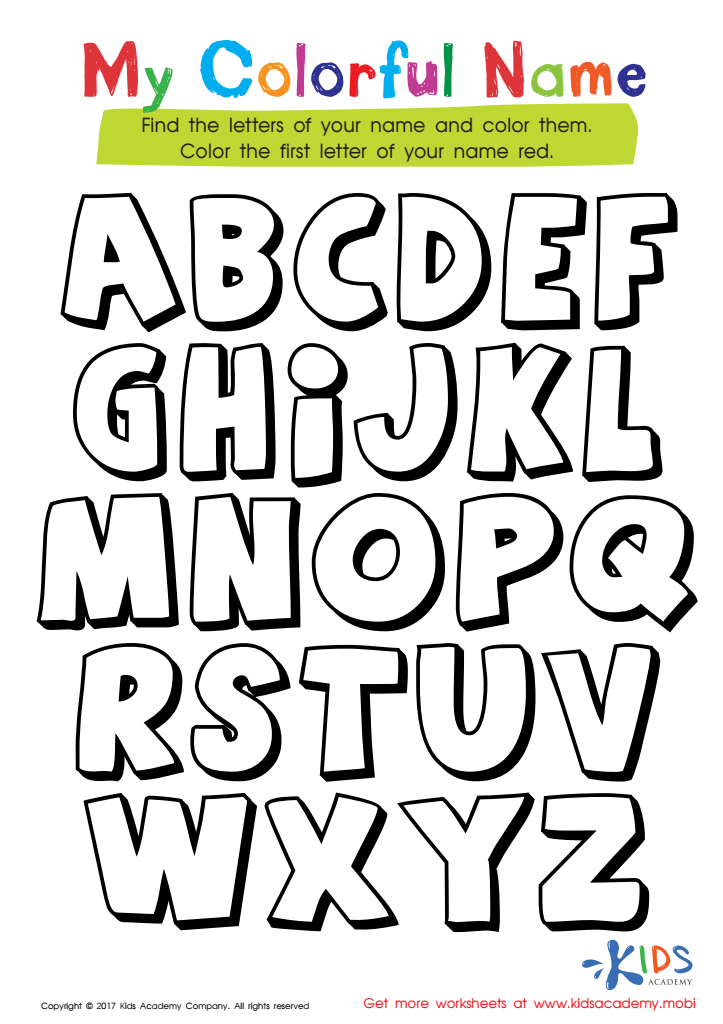

My Colorful Name Worksheet
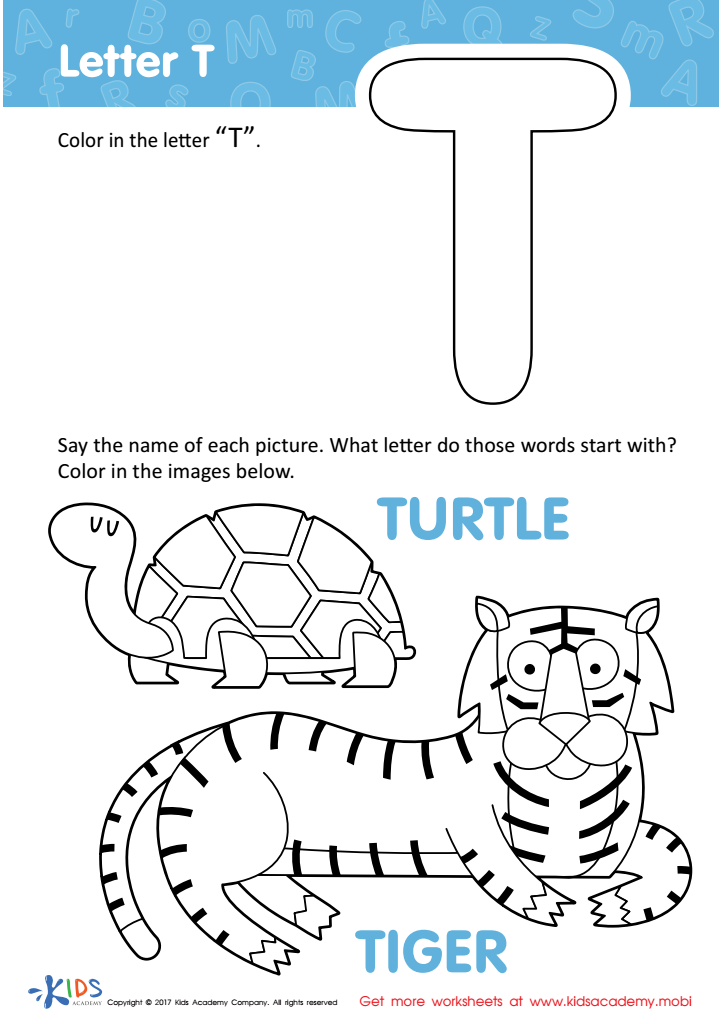

Letter T Coloring Sheet
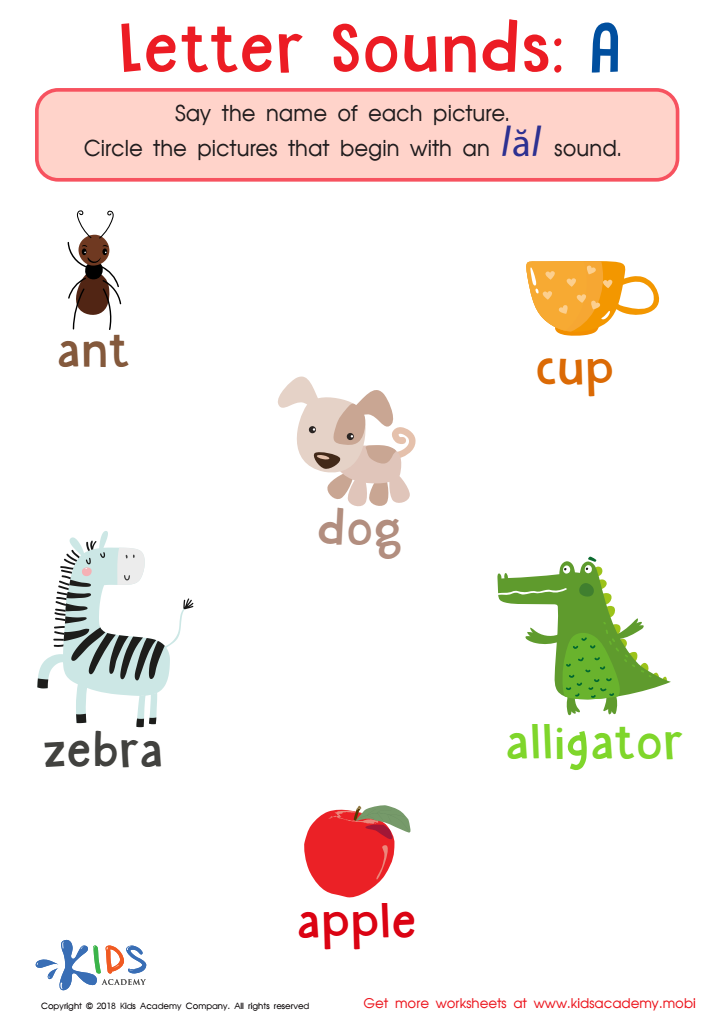

Letter A Sounds Worksheet
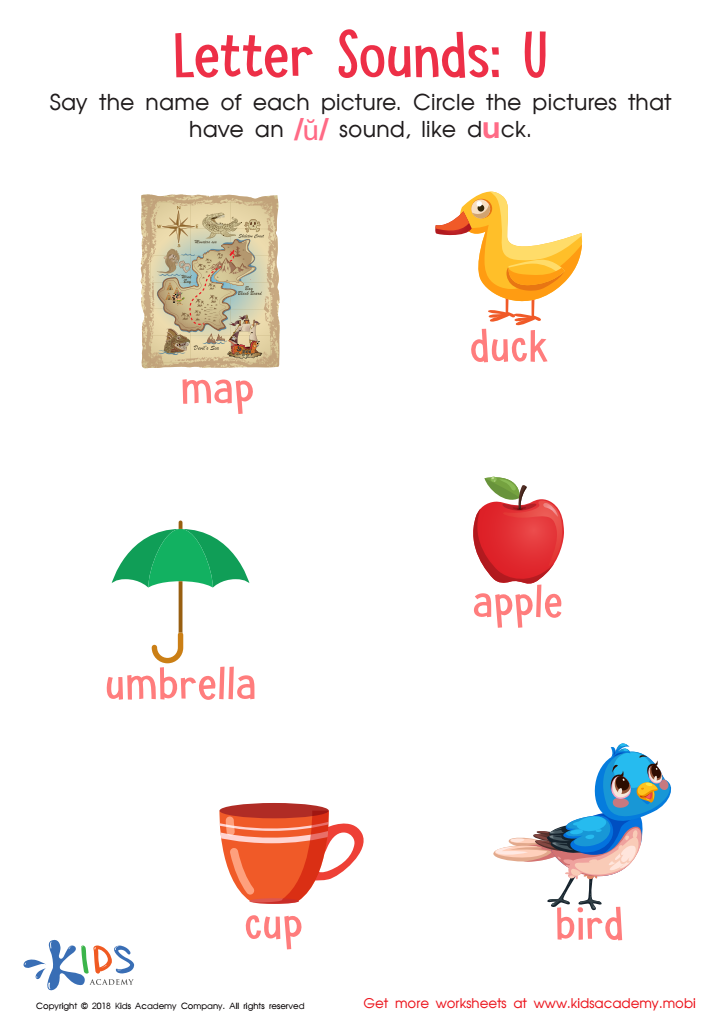

Letter U Sounds Worksheet
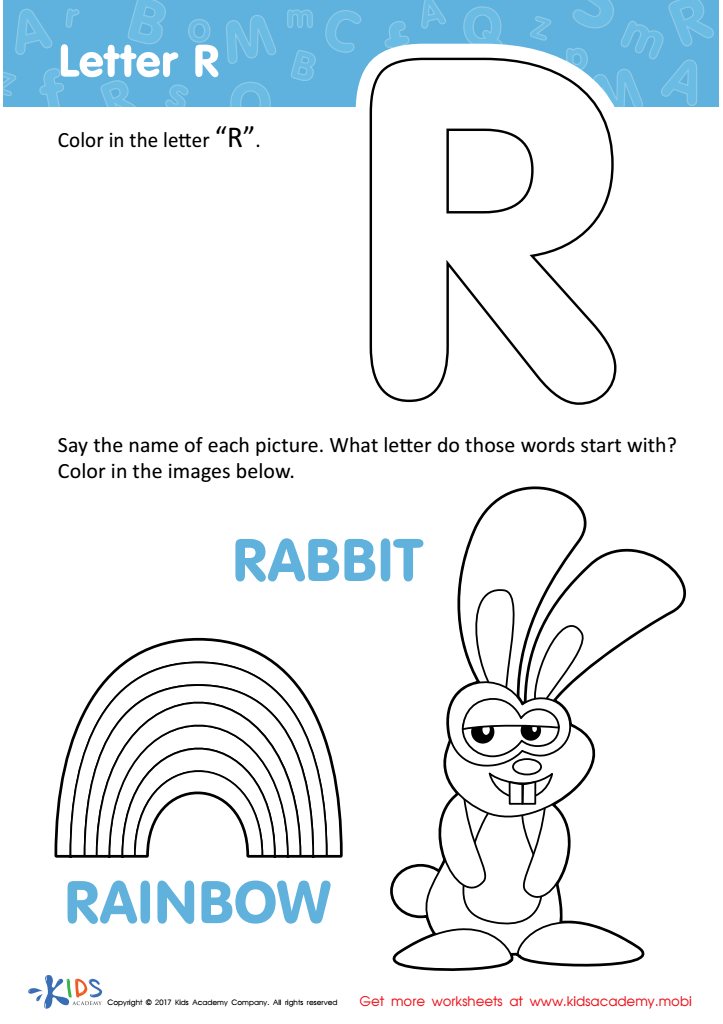

Letter R Coloring Sheet
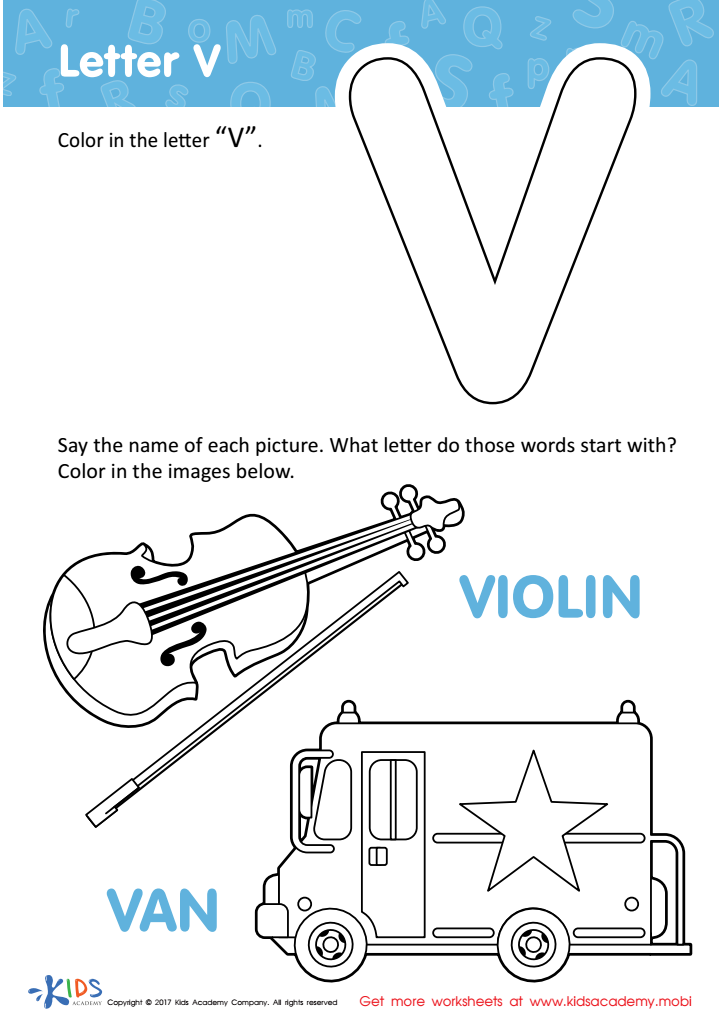

Letter V Coloring Sheet
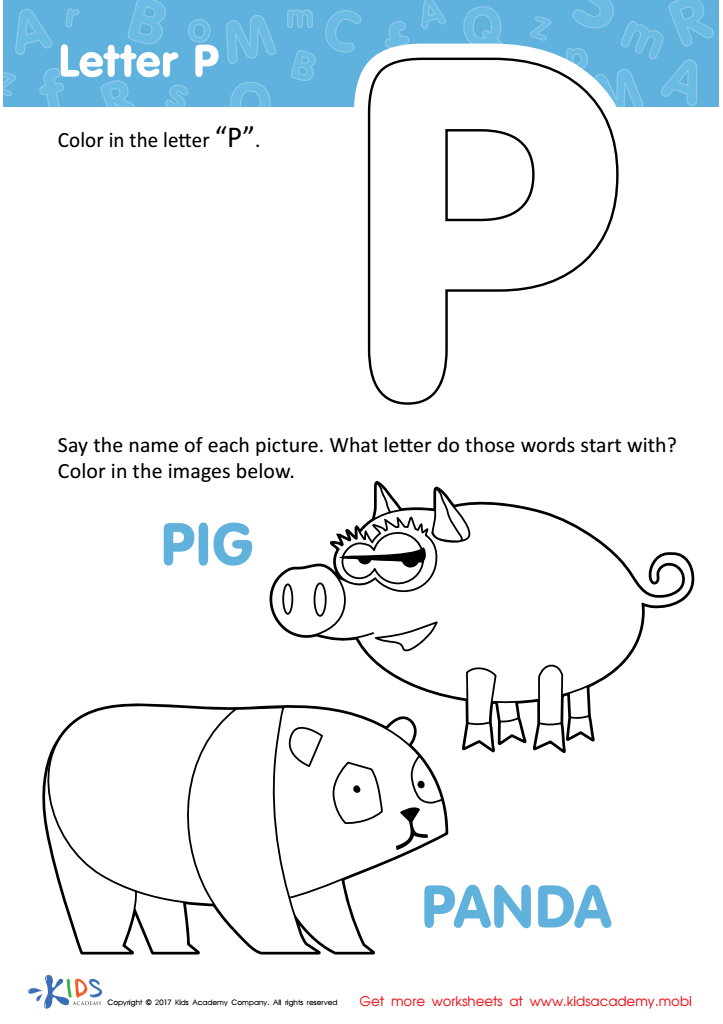

Letter P Coloring Sheet
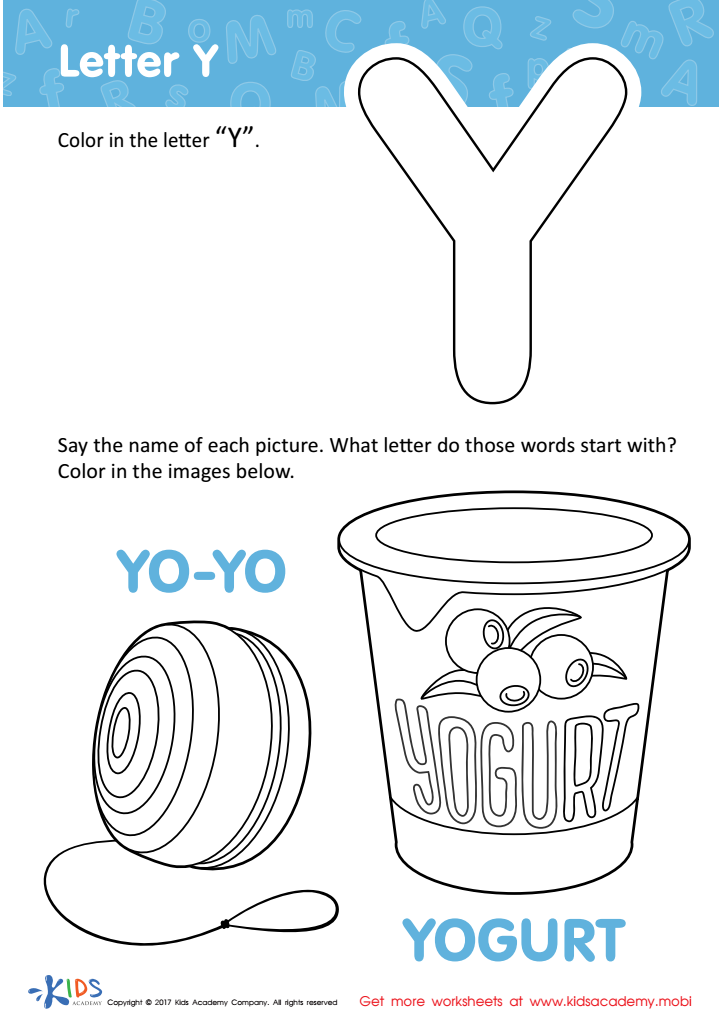

Letter Y Coloring Sheet
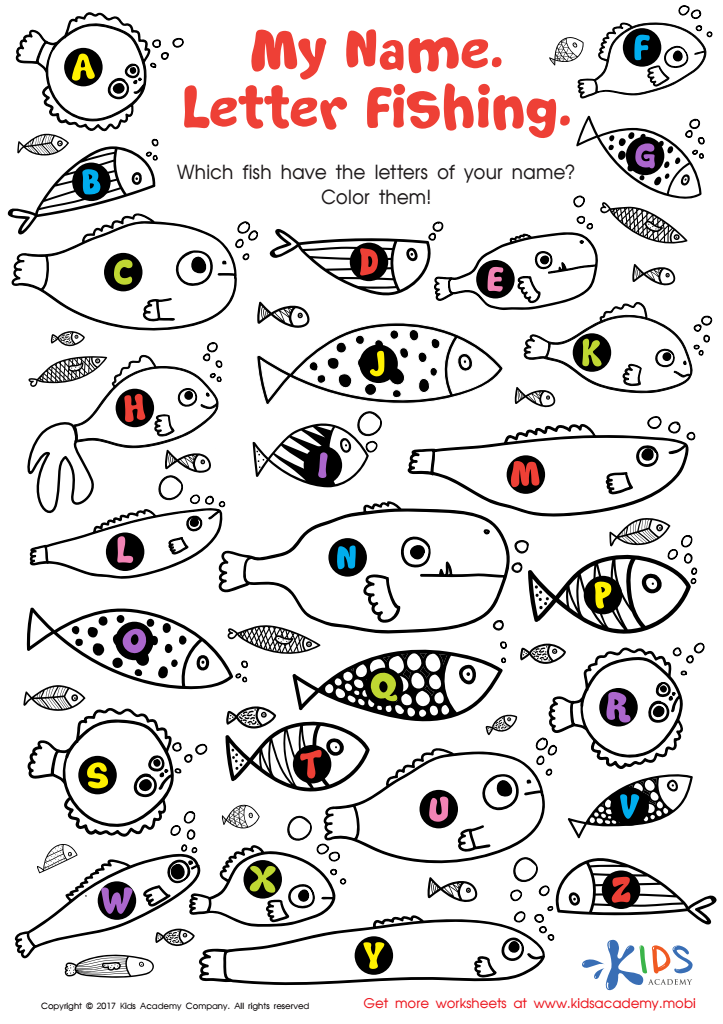

My Name: Letter Fishing Worksheet
Alphabet recognition is a foundational skill that significantly impacts a child’s literacy development and overall academic success. For 5-year-olds, this ability goes beyond just identifying letters; it fosters early exposure to reading and writing. Understanding the alphabet helps children decode words, build vocabulary, and enhance their comprehension skills—all crucial components for future learning.
Parents and teachers should recognize that mastering the alphabet enables children to develop confidence in their abilities and encourages a lifelong love of learning. Additionally, early engagement with letters supports cognitive development, enhancing memory, attention, and critical thinking skills. Children who can easily recognize letters are more likely to participate actively in classroom activities, fostering social skills and collaborative learning.
Furthermore, emphasizing alphabet recognition can bridge the gap between home and school environments. When families read together and engage in fun alphabet activities, it reinforces learning and enhances parent-child bonding. This collaborative approach establishes a positive learning environment, instilling a sense of curiosity and enthusiasm for education.
In summary, prioritizing alphabet recognition not only aids literacy skills but also cultivates a supportive and enriching ecosystem for children’s growth, making it vital that parents and educators invest time in this essential skill.
 Assign to My Students
Assign to My Students



















